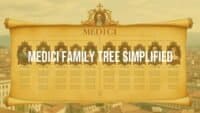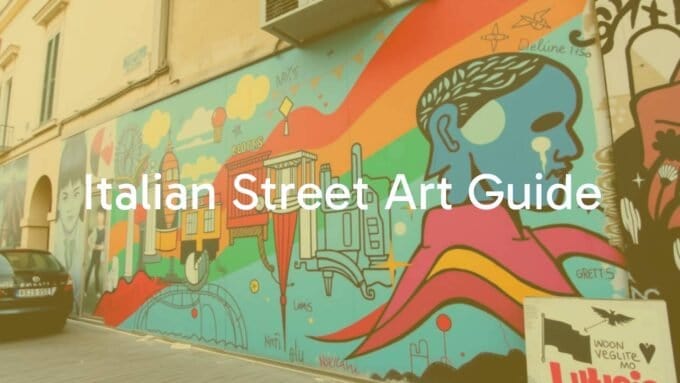Learning Italian goes much deeper than textbook conversations – understanding and using slang is key if you want to really communicate like a local. In 2025, Italian slang words are more important than ever for talking naturally with native speakers, following everyday discussions, and fitting in with real-life Italian culture. These words and phrases aren’t just odd extras; they show what’s happening in Italian society and show the creativity of young people. Without slang, you might pick up on most words but still miss the jokes, emotion, and the natural flow that make Italian such an expressive language. If you aim to sound more like a local and less like a tourist, learning slang is a must.
Italian is loved for its musical sound, but the informal words people use – their slang – help you really see how Italians think and talk in different situations. Slang is what you’ll hear in Milan cafés, Roman city squares, and Naples streets, not in schoolbooks. Picking up on these expressions helps you get involved in true Italian conversations and appreciate the culture behind the language.

What Are Italian Slang Words and Why Are They Important in 2025?
Italian slang is made up of informal words and phrases that Italians use in everyday speech, but which you won’t usually find in formal language courses. These range from simple greetings and fillers to words that describe feelings, talk about people, or describe new ways of living and using the internet. Formal Italian sticks to rules and standard vocabulary, but slang changes quickly, often differs from region to region, and is full of local flavor. It includes everything from funny comments to mild swear words, and completely new meanings for old words. Learning these is important, because they are truly how Italians communicate every day.
In 2025, as people and cultures mix more than ever online and in person, slang has become even more important. Slang brings people together, especially younger Italians, and gives a quick look at what’s “in” or “out” culturally. Using only formal Italian can make you sound stiff or old-fashioned. So, knowing slang helps you sound up-to-date and lets you really interact with people as they speak today.
How Italian Slang Shows What’s Going On in Italy
Italian slang keeps changing and shows what’s new in society, including technology and the influence of other languages and young people. Many newer slang terms – like “mood,” “cringe,” and “flexare” – come straight from English, showing the effect of internet culture on Italians. Once adopted, these words become part of regular chat, especially among teenagers. This mixing shows just how open-minded young Italians are, freely picking words from around the world and making them their own.
New meanings for existing words or totally new expressions keep coming up. One example is “Mai ‘na gioia” (“never a joy”), which started as a meme and became a common way to talk about everyday frustrations. Or “sbocciare,” which used to mean “to bloom,” but now also means “to go out and party.” By following slang, you get a true sense of how Italian society changes and how people express feelings, jokes, or their opinions.
Why Learning Italian Slang Matters for Travelers and Learners
Whether you’re studying Italian or planning a trip, learning slang is useful for several reasons. First, it helps you really understand what people are saying. While language classes teach proper grammar, most Italians – from teenagers to older adults – slip slang into their speech. Without it, you might follow the basics, but you’ll miss what’s really being said or intended, or even the mood of the conversation.
Second, knowing slang makes you sound more relaxed and friendly. If you only use formal phrases, you can come across as stiff or even robotic. Using the right slang helps you fit in and gets you closer to making friends and having genuine interactions. It can also help you understand what you see on Italian TikTok, catch the jokes in TV shows, or smoothly join group conversations, making your experiences in Italy much more enjoyable.

Risks and Mistakes When Using the Wrong Slang
Even though using slang has lots of benefits, using it the wrong way can cause problems. Many slang words only work in certain situations or with certain people. What’s normal among close friends could be rude or awkward with strangers or elders. For example, “Che culo!” (which means someone got lucky) is fine among friends but definitely too informal elsewhere. Using it in a business meeting or when speaking to someone older might offend them or make you look clueless.
Regional differences matter, too. A word popular with teens in Rome might be unknown – or carry a different meaning – in Naples or Milan. Mix up your slang, and you risk sounding odd or offensive. Also, the meaning of many expressions can’t be guessed by the words alone. The best way to avoid mistakes is to listen, watch, and practice with native speakers so you learn not just the words, but also when and how to use them.
Main Trends in Italian Slang for 2025
Italian slang keeps changing. In 2025, the biggest influences are technology, young people, and the global meeting of different ways of speaking. To have up-to-date, natural Italian, it helps to notice these changes and what’s behind them.
- English Influence: More than ever, English words are being adopted, with changes to fit Italian style and grammar-especially in digital spaces.
- Fast Spread on Social Media: New slang often becomes popular on platforms like TikTok, and can quickly travel throughout the country.
- Younger Generations Lead the Way: Gen Z are the main creators and users, mixing Italian and English in new ways and setting the trends for everyone else.
Fresh and Trending Italian Slang for 2025
| Slang Term | English Meaning | Usage Example |
|---|---|---|
| Top | Awesome, great | Quella festa era top! (That party was awesome!) |
| Spaccare | To rock, be brilliant | Quel cantante spacca! (That singer rocks!) |
| Scialla | Chill, relax | Scialla, andrà tutto bene. (Chill, it’ll be fine.) |
| Mood | Current feeling or vibe | Oggi sono proprio in quel mood. (Today I’m in that mood.) |
| Cringe | Awkward, embarrassing | Che cringe quel video! (That video is so cringe!) |
| Flexare | To show off | Gli piace flexare la sua macchina. (He likes to show off his car.) |
| Sbocciare | Party, “let loose” | Stasera sbocciamo! (Tonight we party!) |

How Social Media Changes Slang in 2025
Social media lets slang travel fast. Platforms like Instagram, TikTok, and YouTube give young Italians a place to create, share, and copy new words almost overnight. Many digital activities, like “taggare” (to tag), “postare” (to post), or “chattare” (to chat), are from English, turned into Italian verbs. Being “instagrammabile” (Instagram-worthy) is also a slang phrase kids use. Following Italian creators and social media stars is a quick way to pick up the slang people actually use.
How Gen Z and Young Italians Change Slang
Teenagers and young adults are behind most of the new slang in Italy. They mix English and Italian as they wish, often making silly or clever new words. Words like “bro” and “fra” (from “fratello” meaning brother) are now common for talking to friends, no matter their gender. These younger people also create new meanings for normal words, and their interests-gaming, music, and online trends-introduce new slang to everyone in Italy.
Most Used Italian Slang Words in 2025 (with Meanings)
If you want to sound more local, you’ll need to know the Italian slang that people use daily. These words help you follow casual talk, TV shows, and group chats. Below are some of the most popular ones and how to use them:
| Slang | Meaning | Example |
|---|---|---|
| Dai! | Come on! / No way! | Dai, vieni anche tu! (Come on, join us!) |
| Vabbè | Fine / Whatever | Vabbè, lasciamo stare. (Fine, let’s drop it.) |
| Boh! | I don’t know | Boh, non so. (I don’t know.) |
| Meno male! | Thank goodness! | Meno male, era solo un sogno! (Thank goodness, it was just a dream!) |
| Che figata! / Figo! | How cool! / Cool! | Che figata quella macchina! (That car is so cool!) |
| Che palle! | What a pain! / So boring! | Che palle queste riunioni. (These meetings are a pain.) |
Social and Relationship Slang
- Raga (from “ragazzi”): friends, guys. “Ciao raga!” (Hi guys!)
- Bro/Fra: Bro/dude. “Che dici fra?” (What’s up, bro?)
- Tipo/Tipa: Guy/girl (also boyfriend/girlfriend). “Esco con la tipa.” (I’m going out with the girl.)
- Essere fuori di testa: To be crazy. “Sei fuori di testa!” (You’re out of your mind!)
- Dare buca: To stand someone up. “Mi ha dato buca.” (He/she stood me up.)
Slang for Feelings and Reactions
- Non vedo l’ora: Can’t wait. “Non vedo l’ora di uscire.”
- Sono cotto/a: I’m exhausted.
- Pazzesco!: Amazing! / Unbelievable!
- Che sfiga!: That sucks / What bad luck!
- Che schifo!: How disgusting!
- Mi fa cagare (very vulgar): I hate it / It’s disgusting.
Food, Drink, and Party Slang
- Mangiare come un maiale: Eat a lot. “Mangio come un maiale.”
- Fare la scarpetta: Mop up sauce with bread.
- Bere una birretta/vinello/caffettino: Have a little beer/wine/coffee.
- Sbronzarsi: Get drunk.
- Sbocciare: To party or have drinks (from “to bloom”).
- Fare un after: Go to an after-party.
New and Imported Words for 2025
- Flexare: To show off.
- Ghostare: To ghost (ignore/cut someone off online).
- Lovvare: To love (in chats).
- Skippare: To skip (e.g., a song or a part of a video).
- Spoilerare: To give away a spoiler.
- Taggare, postare, chattare: To tag, post, chat.
Regional Differences in Slang in 2025
Italy’s strong local identities mean slang is often very regional. Some words might be popular everywhere, but plenty of expressions make sense only in certain areas or cities. With the rise of social media, though, some local slang is spreading across Italy, but differences remain important.

Unique Slang in Rome, Milan, Naples, and More
- Rome: “Aho!” (Hey!), “Daje!” (Come on!), “Scialla” (Chill!)
- Milan: “Sbroccare” (Freak out), “Sfigato” (Loser), “Un botto” (A lot)
- Naples: “Uè!” (Hi!), “Guaglione” (Boy), “Ammuina” (Confusion)
- Northern Italy: “Pirla” (Idiot)
- Rome: “Coatto/Coatta” (Rough person)
- Different regions for money terms: “La grana,” “il grano,” “le palanche”
How Slang Is Mixing Across Italy Online
With more people using the internet, slang words from certain parts of the country are now seen nationwide, especially in memes and comments. Still, some words may sound odd if you use them outside their original region, so always check how people around you actually talk.
How to Use Italian Slang at the Right Time
Learning slang is fun, but knowing when to use it is just as important as knowing the words. There are no strict rules, so you need to pay attention and adjust to the people and situation around you. Using slang in the wrong place can lead to confusion or even offend someone. Always be aware of who you’re talking to and what’s appropriate for the moment.
When to Use Slang vs. Formal Italian
- Use slang with friends, family, and people your age in casual settings.
- Use formal language in business, with professors, older adults, or strangers.
- If you aren’t sure, start formal. You can relax and use slang when you see others doing it with you.
Tips for Using Slang with Friends, Strangers, or Older Adults
- With friends, feel free to use common slang like “Dai!” or “Che figata!”
- With strangers, keep it mild-words like “Allora” or “Mamma mia!” are usually safe.
- With older people, it’s better to avoid youth slang like “fra” and use more standard Italian instead.
- Watch what locals say, especially in new settings.
Making Your Slang Fit the Situation
Where you are, who you’re talking to, and what you’re talking about all affect what slang is okay. A word that’s funny with friends can be rude at work. Some regional slang may not be understood in other places. Listen and adjust as needed.
Neutral, Playful, and Rude Slang: What’s Okay to Say?
- Neutral (safe): “Boh!” (I don’t know), “Vabbè” (Okay), “Allora” (So, then), “Meno male!” (Thank goodness)
- Playful (friendly): “Dai!” (Come on!), “Che figata!” (How cool!), “Scialla” (Chill), “Birretta” (little beer)
- Rude (use carefully): “Che palle!” (What a pain!), “Che culo!” (How lucky! – but crude), “Cazzo” (f-word), “Mi fa cagare” (disgusting – very vulgar)
If you’re not sure, stick to neutral or playful expressions, and remember gestures and tone are just as important as the words themselves in Italian.
Fun Ways to Practice and Learn Italian Slang in 2025
The fastest way to get comfortable with slang is to practice with real people and absorb Italian as it’s spoken. Besides talking, there are now lots of modern ways to keep learning, like shows, music, and online games. The more you listen and use the language, the quicker the slang will come naturally.
Practice with Native Speakers
- Find language exchange partners, online or in person
- Use conversation apps like Tandem or HelloTalk
- Travel, or chat with Italian friends as much as possible
Native speakers will often explain why a word is used and how it feels, and will help you tell which slang is fun, which is a bit rude, and which is totally out of line.
Learn from TV, Social Media, and Music
- Watch Italian Netflix shows like “Summertime” or “Skam Italia” for natural slang in everyday talk
- Follow Italian influencers and YouTubers
- Listen to current Italian music – pop, trap, or rap often uses up-to-date slang
This will help you hear not just the words, but the culture and mood in which they are used.
Use Quizzes, Flashcards, and Lists
- Find lists of common slang and their meanings online
- Make flashcards (paper or apps) with example sentences for review
- Test yourself with quick quizzes to make the new words stick
These approaches are quick to use and help you remember and understand new slang, though nothing beats real conversations.
Quick Q&A: Italian Slang in 2025
Here are some answers to common questions about Italian slang today:
What Are Some Good and Bad Slang Words?
| Positive | Negative |
|---|---|
| Figo! (Cool!) | Che palle! (How annoying!) |
| Spaccare (Be awesome) | Che sfiga! (That sucks!) |
| Top (Great) | Che schifo! (Disgusting!) |
| Che figata! (How cool!) | Mi fa cagare (Really bad!) |
Which Slang Is Popular with Teens?
- Cringe
- Mood
- Flexare, ghostare, skippare
- Bro, fra, raga
- Scialla, svoltare (to turn things around/gain success)
- Iconico, leggenda (Iconic, legend – said as a joke)
Can I Use Slang at Work or School?
Usually, you should keep things formal in work, school, or any official situation. Using slang here sounds unprofessional and is not recommended. Stick to standard Italian, and only use slang with friends or in relaxed company.












Leave a comment